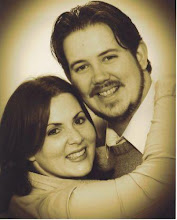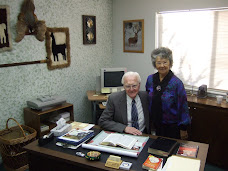



Tonight we elected Bob Robertson and re-elected Phyllis Hill to our church board!
GOOD NEWS was shared about the church being completely out of debt because we sold an antique car the Robertsons donated!
We CELEBRATED the many ministries God is blessing and ATE PIE!
(You'll notice from the pictures even our youngest church member was present)
Here is the teaching I opened the meeting with...
Why We Don't Have to Win Every Argument: Ray Pritchard
Romans 14-15
Welcome weaker believers – 14:1
Welcome weaker believers – 14:1
Don't quarrel over secondary matters –14:1
Don't despise someone you disagree with – 14:2
Don't pass judgment on another believer – 14:3
Be convinced in your own mind – 14:5
Live for the glory of the Lord – 14:5-7
Remember that you will answer to God someday – 14:12
Don't put a stumbling block in front of someone else – 14:13
Respect the conscience of others who see things differently – 14:14-15
Be careful about your actions – 14:16
Christ matters more than our opinions – 14:17-18
Your thoughtless words can destroy another person – 14:15
Your thoughtless words can destroy God's work –14:20
Unity matters more than your personal freedom – 14:2-21
Keep your mouth shut about your personal opinions – 14:22
Enjoy your freedom but do not flaunt it – 14:22
Don't violate your own conscience – 14:23
Carry those who are weak – 15:1
Don't please yourself – 15:1
Focus on how to help others – 15:2
Remember the example of Christ – 15:3
As I look at what Paul has said, several thoughts come to mind:
1. This is a very daunting list. 2. If we actually lived like this, most church conflicts would disappear.3. We will never live like this on our own. We need God's help.4. It must be a huge issue because Paul devotes so much space to it.
What Paul Doesn't Say
He never says, "Prove the other person is wrong."
What are we to make of this? Why doesn't Paul encourage them to do what we automatically try to do--convince others of the superiority of our own opinions? A number of answers come to mind.
1) It's almost impossible to argue someone out of a deeply-held position. We've all tried to do it, haven't we? And it almost never works. You talk and you discuss, you bring up logical reasons, you make your case, you demolish their case, you answer their objections, in short, you win the argument. But your victory is hollow because "a man convinced against his will is of the same opinion still." If down deep someone loves country music, you can argue for Bach all you want, and they will still prefer Waylon Jennings. Music isn't a matter of argument; it's a matter of taste, of culture and history and tradition. It's a matter of the heart, not the head. That's not to say that musical preferences can't change. They can and they do, but that can't be forced by someone else.
2) Once you focus on secondary issues, you soon lose sight of the things that matter most. That's a huge part of Paul's argument in Romans 14-15. The kingdom of God matters more than personal opinion. God values righteousness, peace and joy among his people more than uniformity of personal opinion about secondary matters. In a sense, you might say that God is perfectly willing for the strong and the weak to live together in peace and harmony even though it's better to be strong than to be weak. Or said another way, it's okay to be wrong about smaller issues as long as you are right about the larger issues of life.
3) We are all "strong" in some areas and "weak" in others. We all have some issues (secondary issues) that matter a great deal to us. And in some cases, we are ready to fight for those things because they mean so much to us. Sometimes the only way to preserve peace is to go our separate ways. Sometimes the only way to love each other is from a distance. This is a regrettable truth about Christian living in a fallen world. We don’t always agree, and sometimes we can't find a way to get along and work together in close quarters. And God (because he is sovereign and wise and full of mercy) is able to use those disagreements (as he did with Paul and Barnabas) to bring about the furtherance of the gospel. Out of pain and many tears and the heartbreak of broken relationships, God sows the seeds of a new advance for his kingdom. This does not justify harsh words and foolish actions nor does it absolve us of the need to work for peace and to ask for forgiveness when we have sinned, but it demonstrates that our divisions and disagreements can ultimately work out for good in ways that we could never have foreseen.
How should we feel about those with whom we strongly disagree? This is a difficult question that challenges us on many levels. It's not hard to be kind to people who agree with us. It's much harder to find the right balance when you are in the midst of a heated conflict. I recently ran across a letter that Mahatma Gandhi wrote to Arthur Moore in December 1940. In just three sentences he summarizes the way we ought to feel toward those with whom we have strong disagreements:
I see that we cannot agree as to facts and, where we agree, we view them from different angles of vision. Therefore we must for the time being agree to differ. ‘We shall know each other better when the mists have rolled away.’ I know that our friendship can easily bear the strain of our differences.
How should we feel about those with whom we strongly disagree? This is a difficult question that challenges us on many levels. It's not hard to be kind to people who agree with us. It's much harder to find the right balance when you are in the midst of a heated conflict. I recently ran across a letter that Mahatma Gandhi wrote to Arthur Moore in December 1940. In just three sentences he summarizes the way we ought to feel toward those with whom we have strong disagreements:
I see that we cannot agree as to facts and, where we agree, we view them from different angles of vision. Therefore we must for the time being agree to differ. ‘We shall know each other better when the mists have rolled away.’ I know that our friendship can easily bear the strain of our differences.
4) Ultimately we are forced to admit that the church is not ours, but God's. Pastors come and go, people come and go, families come into the church and then leave the church, the community changes, and over time churches slowly change. Nothing in this world stays the same forever. I heard about a woman whose family helped found a particular church. Over the years her family has given an enormous amount of money to the church for various projects. As a result, she and her family occupy a place of considerable importance in congregational life. It happens that there are some people who are unhappy with the pastor for various reasons. In discussing the controversy with her children, the woman urged them not to worry about it. "We were here before the pastor got here, and we'll be here long after he's gone." On a practical level, she's probably right. Lots of longtime church members have lived through (and in some cases "survived") quite a few pastors. But underlying that statement is the unspoken assumption that "we built this church and it belongs to us."
No, it doesn't.
The church doesn't belong to the pastor.
The church doesn't belong to the people.
The church belongs to the Lord.
He is the head of the church.
He is the head of the church.
He purchased it with his own blood.
He gives it his life.
Christ is Made the Sure Foundation
Christ alone is the head of the church. No human being "owns" the church. Because it belongs to the Lord, he can take care of his own possession. Because he is building it day by day, he knows exactly where each piece fits. Because he is the foundation, the church ultimately can never be destroyed. An unknown 7th century author wrote a hymn that was translated from Latin into English by John M. Neale in 1851. The first verse speaks to this great truth.
Christ is made the sure Foundation,Christ the Head and Cornerstone;Chosen of the Lord, and precious,Binding all the Church in one,Holy Zion’s Help forever,And her Confidence alone.
Christ alone is the head of the church. No human being "owns" the church. Because it belongs to the Lord, he can take care of his own possession. Because he is building it day by day, he knows exactly where each piece fits. Because he is the foundation, the church ultimately can never be destroyed. An unknown 7th century author wrote a hymn that was translated from Latin into English by John M. Neale in 1851. The first verse speaks to this great truth.
Christ is made the sure Foundation,Christ the Head and Cornerstone;Chosen of the Lord, and precious,Binding all the Church in one,Holy Zion’s Help forever,And her Confidence alone.
Do we expect Christ to be obviously present in our congregations?
Do we want him to be actively in charge when we meet?
When the body says to the head, "We don't need you. We can handle this on our own," a total breakdown is not far away.
Behind our divisions and our disagreements, behind our fussing and feuding, behind all our divisive squabbling over secondary matters, behind it all stands a stark truth. We have severed ourselves from Christ our head.
No wonder we have problems.
No wonder we can't get along.
No wonder we spread rumors.
No wonder we pick at each other.
No wonder some even hate going to church.
Good theology can save us, and bad theology will destroy us. As long as we think the church belongs to us, we have to fight for whatever we believe in, even at the expense of the gospel itself. But when secondary issues become more important than the gospel, the church ceases to care about reaching the lost and becomes inward focused. I am saying that it is possible for an evangelical church to become so consumed with inner controversy over secondary issues that it severs itself from Christ.
But if Christ is the head of the church . .
We can trust him to change opinions if they need to be changed.
We can trust him to change opinions if they need to be changed.
We can wait for him to do his work.
We don't have to always have our own way.
We can set aside lesser things for his sake.
We can seek the good of those with whom we disagree.
We can work together for the sake of the kingdom.
And if we must go our separate ways . . .
We can do it with faith that he has not left us.
We can trust that he will continue to lead us.
We can know that he will do what needs to be done.
We can give up seeking revenge because vengeance belongs to the Lord.
We can resolve to speak good and not evil about others.
We can let go of the past.
We can press forward into the future.
In short, we can let God be God.
In short, we can let God be God.
And we can say, "Let the church roll on."








No comments:
Post a Comment